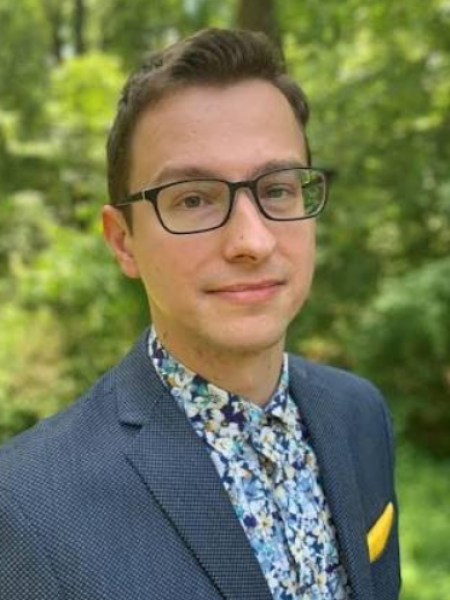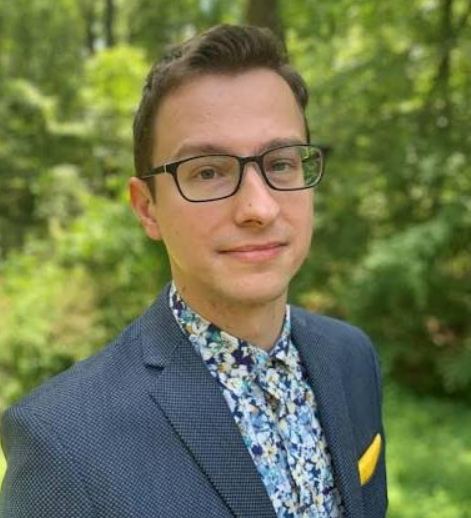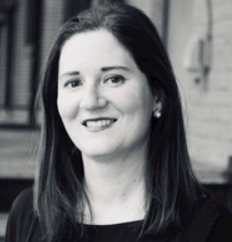Interview with Jasmin Mujanović

Jasmin Mujanović is a political scientist and policy specialist of Southeast European and international affairs. He has published two books titled Hunger and Fury: The Crisis of Democracy in the Balkans (2018) and The Bosniaks: Nationhood After Genocide (2023). Mujanović holds a PhD from York University in Toronto. He currently works as a Senior Non-Resident Fellow at the Newlines Institute for Strategy and Policy in Washington, D.C.
Can you describe your occupation, including your title, industry, duties, and the impact your actions have in your field?
I am a political scientist and policy consultant. Presently, I work as a Senior Non-Resident Fellow at the Newlines Institute and serve on the advisory boards of several research and advocacy initiatives, including the Nationhood Lab at Salve Regina University’s Pell Center for International Relations.
My day-to-day work consists of providing analysis and policy options for decision-makers in the major capitals concerned with the Western Balkans. Subsequently, I spend a lot of time talking to various civil servants, legislative aids, and the policymakers themselves. I also travel frequently, especially to the Western Balkans, where I speak to relevant local actors and advise them in their efforts to move their respective countries closer to the EU and NATO. I spend the brunt of my time in Bosnia and Herzegovina, but I also often travel to Kosovo and Montenegro. I am regularly invited to give various talks and lectures on regional developments at an assortment of universities, think tanks, and intergovernmental organizations all over the world.
I also write analyses about regional affairs for various international media and have written two books, both of which were published by Hurst Publishers and Oxford University Press. The Bosniaks: Nationhood After Genocidethe was translated into Bosnian by IK Vrijeme earlier this year.
How did you get started in political science and policy consulting?
In truth, it was a bit haphazard. When I started graduate school, I was initially interested in writing about social movements, particularly the labor movement, but had no desire to work on Bosnia or the region. By the time I started my PhD, however, I realized that my initial interest in social movements had really been driven by a desire to understand why such phenomena were largely absent in the Western Balkans. I wanted to better understand why Latin America had such a rich history of mass social movement mobilization, for example, while the Western Balkans had virtually none, especially since the conclusion of the Yugoslav Wars. Why was it so hard to mobilize people to demand political change in Bosnia despite seemingly widespread social dissatisfaction in these societies?
The pursuit of these questions eventually turned into my dissertation and then my first book. But relatively early on during the pursuit of my PhD — in my second or third year — I began to realize that I was not interested in a traditional academic career. I wanted to complete the PhD to have the time and resources to deeply research these topics, but I didn’t find myself being interested in becoming an academic. And as much as I loved the teaching aspect of academia, I wanted to participate in actual political and policy debates, not just merely talk or write about them.
Unfortunately, I saw no established path to do that, at least not in any form that seemed accessible to me. I had supportive mentors in my graduate program, to be clear, but they could not guide me towards, in effect, becoming a public intellectual in a peripheral region of Europe. In the interim, I had started writing publicly about the region in a variety of specialist publications, such as Balkan Insight, which led to a variety of people from all over the world contacting me. They were working in foreign ministries or various research institutes and had either been tasked with or had developed an interest in Bosnia but had relatively few experts to consult their work. There were fewer than ten people on both sides of the Atlantic writing about social movement theory related to the Western Balkans. I happened to be one of them.
Fairly rapidly, I became a regular source of analysis for various policy communities in Europe and the United States, simultaneously avoiding any permanent affiliation with any of the major organizations that began or resumed similar work in the interim. And whereas many of them became or already were what is sometimes pejoratively referred to as “donor-driven” organizations, I was able to continue an independent line of inquiry throughout. In a sense, I became one of a handful of experts on the Western Balkans who could provide critical analyses of local developments and international policy in the region.
What steps have you taken over the years to advance in your industry?
My social media presence has been the most effective means through which my career has advanced. Nine times out of ten when I meet a new person at a conference or when they contact me via email, they already know me and the quality of my analyses and research from my Twitter feed. Some have encountered my articles, read my books, heard me on a podcast, or seen me on a chat show, but for the most part, folks know me from Twitter. I’ve become “Jasmin from Twitter.” And for all the faults of social media, I do believe it is an excellent and necessary platform for public debate.
I use social media as a platform for my research, which has over time secured a modest audience, the aggregate of which is that my career as a policy consultant is self-sustaining. At this point, I rarely if ever contact anyone for “opportunities” unless I have some specific project in mind that I wish to pursue.
Today, I unfortunately have far more demands for my expertise, analysis, and input than I have time to fulfill. This is part of the reason why I have begun more frequently mentoring students and early career professionals, especially from the global Bosnian community, both because I want to help create opportunities for others, but also because I want to pass on some of the strategies for success I think I have developed. I also want to share with them the mistakes I have made along the way to help them avoid making the same.
How has working as a political scientist strengthened your connection to the Bosnian community?
Bosnia is not a big place, and the Bosnian community as a whole is not huge. There are, generously, perhaps five million of us across the entire world, likely fewer. And most Bosnians maintain that the war and the country’s post-war instability has soured them on politics altogether. And yet interest in the welfare of the country remains a mainstay of the community’s life, including in the diaspora. I concluded early on that the only way to make sense of these contradictions was to accept that it was not politics per se that people resented, but the perception of an absence of new kinds of politics. It is for others to judge whether I have been successful in this effort or not, but throughout my professional career, I have attempted to offer new ideas or concepts in my work on Bosnia and the region at large.
Sometimes that has meant offering pathways for change. Other times, it has meant vocally opposing what I thought were mistaken initiatives of both the local and international variety. But I have always tried to model the necessity of engagement for change; that is, the belief that things can be better, but they require that we all become involved in making them better. We can’t just wait for someone else to do it. I have had more than my fair share of critics, but for the most part, I think people appreciate that aspect of my work. And that is the part that has kept me engaged, too; I get to try to make things better for my community, and that’s a privilege I wouldn’t trade for anything.
What has been a memorable project for you, and what did it teach you?
I have been extremely fortunate over the past few years to have developed an informal relationship with the Srebrenica Memorial Center. Portions of the Bosniak community in Srebrenica have allowed me to participate in projects like the publication of “The Bosnian Genocide: Reader.” This is an instructional packet for teachers and professors who want to teach the Srebrenica Genocide or the broader Bosnian Genocide. We developed this educational tool with the Srebrenica Memorial Center. Because I am so awed by the resilience of the Bosniak community in Srebrenica and also in places like Stolac, it is a great honor to have had opportunities to share their stories with broader audiences. Involvement in projects like that has only further convinced me that the merit of one’s work is not what it does for us as individuals, but what it does for those around us.
What advice do you have for Bosnian-American professionals who want to join your industry and succeed like you?
I always advise people to specialize. Most Western education programs, including most Master of Arts and Master of Science programs, promote generalist knowledge paradigms. Those are important for having a well-rounded, broad understanding of the world. But specializing is what actually allows you to get really good at something, and getting really good at something is what ultimately leads to success. And contrary to what many may think, specialization does not actually box you in. Quite the opposite. If you develop one set of expertise, you learn how to become an expert, more generally. That is, you can apply those same learning methods to another topic or field that you may want to pursue later.
For folks in the Bosnian-American community, specifically those who want to focus on Bosnia or the Balkans at large, you need to speak the language. There is an unfortunate tendency within our diaspora to not promote or even maintain the Bosnian language, and that is a fatal flaw if you develop interest in working in the region. I know it is hard to maintain multiple languages, and you may never end up being as comfortable working in Bosnian as you are in English, but you must work on it. If you cannot talk to people, especially in smaller communities in Bosnia and Herzegovina, you cannot meaningfully contribute to their welfare.




